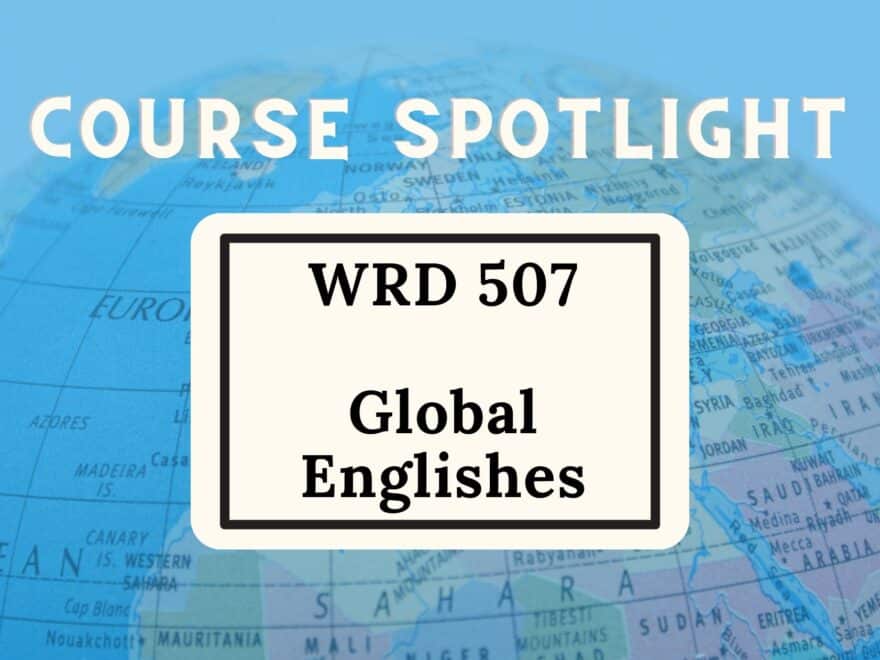Note: This post was updated in January, 2024.
This Spring Quarter, Dr. Jason Schneider is teaching one of his favorite courses—WRD 507 Global Englishes. This course showcases the vast variations in the English language across the world and the forces that have made English both a modern lingua franca and a language expressed in many different ways around the world. For students interested in linguistics, language teaching, and the political histories that shape our communication, this class is an opportunity to engage with English on an entirely new playing field.
“In the broadest sense, the course offers a way to think about the politics and histories of cultural artifacts (of which language is one),” Dr. Schneider explained. “I mean that by looking at the long story of English around the world, and by examining some of the current processes that define English in different places, we are taking up issues such as colonialism and post-colonialism, cultural mixing and hybridity, interactions between local cultures and hegemonic global forces, and the difficulties of trying to find ‘easy’ explanations or answers for any of the questions implied in these issues.”
Dr. Schneider hopes that this course will not only illuminate these aspects of language but will also help students see the layers of cultural exchange that shape our everyday interactions. Learning how English has shifted, evolved, and changed from the cultures in which it is used reveals that the language is much more complex than it first appears–so much so that part of the study of global Englishes involves determining at what point in its diverse evolutions the language becomes something new. What makes a regional English, “English” or a different dialect altogether? “We have to come up with criteria we might use to make those decisions,” Dr. Scheider says, and students will engage with several theories on doing so throughout this course.
Additionally, WRD 507 can provide particularly relevant new perspectives for those interested in teaching writing and language. As Dr. Schneider puts it, “Particularly for teachers of English, this course is an important opportunity to reflect on which of the many Englishes we may be teaching—or are expected to be teaching—and to consider the rationale for that. As students who have taken my teaching classes know, my answer to most difficult pedagogical questions is, ‘It depends…’ But what does it depend on? I think teachers can strengthen their understanding of their own work if they are able to formulate persuasive responses to those pedagogical questions.
Dr. Schneider’s Global Englishes is a course that provides the rare opportunity to confront one’s own beliefs about language. It’s a chance to become not just a better student of language, but a more globally aware citizen. “This is one [of] my favorite classes to teach,” Dr. Schneider shares. “I love learning more about the way English is changing around the world. I love delving into hybrid cultural practices. And I really love pushing students to question the assumptions they might have had (that we have all had) about language—that there are better or worse versions of it, that we can easily draw lines defining separate languages, or that languages are ever really “pure” (to name a few!). Along the same lines, I like helping students grapple with complex questions that have no ready answers.”
Consider enrolling in WRD 507 Global Englishes in Spring Quarter, and check out additional Spring 2024 course offerings here.
